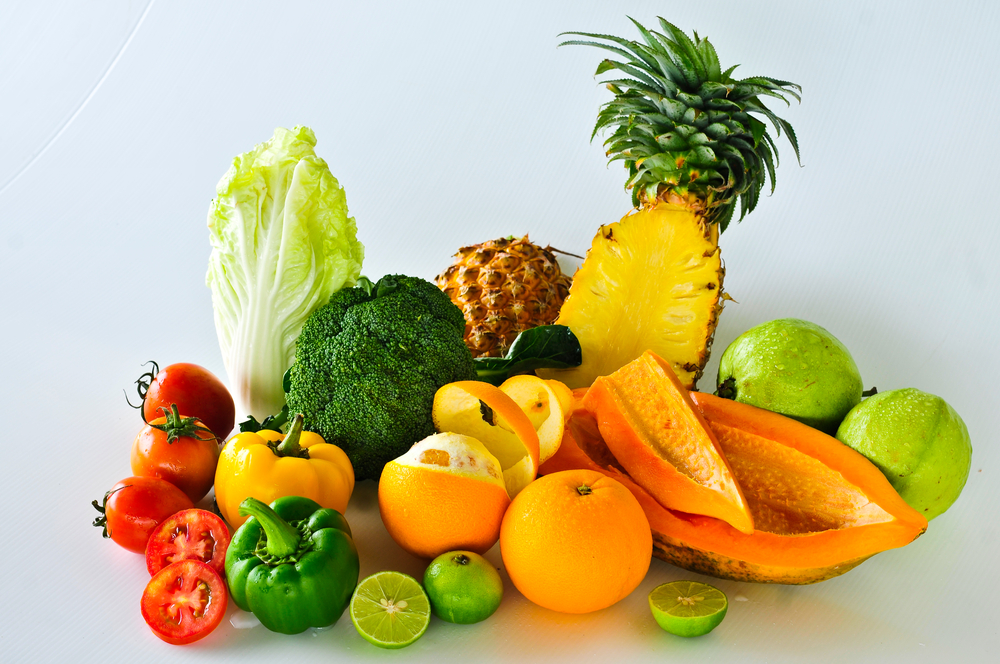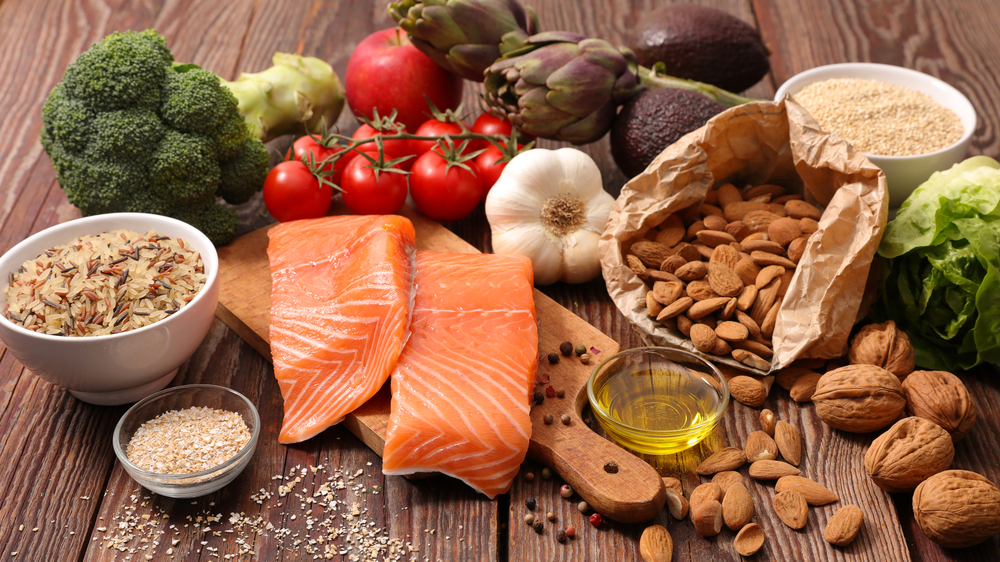Eating Your Way to a Healthy Mouth: Diet Do’s and Don’ts
28 Mar 2017
Everyone has heard about the dangers of sugar and your health, but there are many other factors to keeping your oral health at its peak. Your mouth is a very busy place. The oral mucosa is one of the fastest growing tissues in the body. Your gums need Vitamin C for optimal health. The acid-base balance in your mouth is critical for preventing decay. Proper nutrition is essential to keep everything supplied with all the vitamins and nutrients needed for optimal oral health. Read on to learn all about how your food choices affect your mouth!
Does Sugar Cause Cavities?
Did you know that sugar doesn’t cause cavities? That’s right. While a sugary diet certainly contributes to the likelihood of getting cavities, the real culprit is acid. Sugar, itself, does not harm the teeth. Let’s take a closer look at how tooth decay works.
The enamel of your tooth is not alive. It is a hard outer shell that protects the living inside of the tooth from bacterial invasion. Your enamel is the hardest substance in your body and it is also the most mineralized. Your enamel is 96% minerals! Minerals are the hard substances that help form rigid structural parts of our bodies like bones, teeth, tendons, ligaments, and cartilage, to name a few.
When fermentable carbohydrates enter the mouth, they breakdown into sugar immediately, unlike other carbohydrates who have the common decency to wait until they get to the privacy of the digestive tract before breaking down into sugar. Now these delicious sugars are introduced to the ravenous appetites of your plaque bacteria, and this is where the mayhem arises. The bacteria feast upon the readily available sugars and secrete acid as a waste product. This acid attacks the minerals of the enamel.
At your mouth’s natural pH, your mouth is prepared. Calcium and phosphate rich saliva bathe the teeth, and with the help of fluoride, quickly repair the demineralized area. The newly mineralized surfaces are even stronger than the originals! But, as in any good tale, there is a twist! When the bacteria feast on sugar and then secrete a bunch of acid, the pH falls, and in this new, acidic environment, the tooth sustains demineralization faster than it can remineralize, resulting in decay. Did you know that children are more susceptible to demineralization than adults? Now you do.
Why is Vitamin C important to Oral Health?

You probably remember the tales of sailors dying of scurvy on the long passages overseas, and how that led to limes being brought on journeys to prevent it. Scurvy is a Vitamin C deficiency. One of the early signs of scurvy is bleeding gums. Why? Because Vitamin C is essential for the formation of collagen, and collagen is an essential component of the connective tissues of the body. Let’s take just a little peek at what collagen does for us.
- Collagen is the most abundant protein in the body
- It is found in bone, skin, muscles, tendons, vessels
- Collagen is responsible for skin elasticity
- Collagen is responsible for keeping the ligament that holds your teeth to the bone of your jaw (Periodontal Ligament)
- Collagen is the cement that holds us together
Without Vitamin C, collagen cannot be formed. Thus, you start to notice annoying little symptoms like your teeth falling out. The bottom line here is that Vitamin C is good for you, and like Vitamin A, it must be consumed–the body doesn’t make it. The best way to incorporate it into your diet is by eating foods which are rich in it–not by taking supplements!
Here is a list of foods rich in Vitamin C
- Citrus fruits
- Tomatos
- Bell peppers
- Strawberries
- Kiwis
- Broccoli
- Kale
- Cantaloupe
- Brussel Sprouts
What Foods Help Clean Teeth Naturally?
There actually are foods that can help you keep your teeth clean. Firm fresh vegetables and fruits that have a high water content are the magic bullet. These foods are naturally and gently abrasive enough to help minimize plaque and they stimulate salivary flow. They have the added benefit of containing dietary fiber. Want to freshen up on a long road trip or a marathon session at the desk? Eat one of these:
- Apple
- Celery
- Cucumber
- Carrots
How Can Eating Habits Affect Oral Health?
It’s not just what you eat–it’s how you eat. Studies have found that frequency and duration of sugary meals has a greater impact on cavity formation than the amount of sugar eaten. What does that mean? Think about how you consume your fermentable carbs. It is better to drink a can of soda at a meal than to sip one over the course of several hours. Think, too, of the length of time the sugar will be sitting around feeding your bacteria. A sticky piece of candy will be in contact with the grooves of your teeth for a long time. Here are some tips.
- Eat sugary snacks with a meal – people who snack between meals are more likely to develop decay, even if they consume the same amount of sugar
- Don’t brush right after consuming a sugary snack – the acidic environment of the mouth paired with the brushing may cause etching and/or loss of enamel
- Stay away from sticky sweets that will stay in contact with teeth for extended periods of time
- Try to finish up a meal with something friendly to the pH of your mouth, like milk, cheese, or sugarless gum
Eight Food Choices for A Healthy Mouth

So now that we understand the connection between nutrition and oral health, Here is a list of the best foods to keep around to keep your mouth happy.
Cheese
That’s right. Delicious cheese is good for your teeth. Do you want me to say it again? Hard, aged cheeses have the most benefit. But remember the Europeans when you are having a meal and consider a nice finishing bite of cheese after a meal, especially one with those fermentable carbohydrates we talked about. Why is cheese good for your teeth? It stimulates salivary flow and it raises the pH of your mouth to balance the acid from a sugary meal. Live it up!
Best Choices: Aged Cheddar, Monterey Jack
Water
Water offers the perfect pH for your teeth! Not only that, it is a natural cleanser. Rinse after eating fermentable carbs and sugar. Hydration ensures good saliva flow, and in case you forgot–saliva is your teeth’s first defense against demineralization! Glug-Glug!
Fermented Foods
Fermented foods that contain probiotics can be your mouth’s ally! Early studies show they may be able to reduce plaque and promote healthy gums. They are also showing promise at repopulating the gut bacteria, which have overall benefits which will benefit the teeth and gums.
Best Choices: Kimchi, Sauerkraut, Kombucha, yogurt
Green Leafy Vegetables
Rich in calcium, green leafy vegetables also contain Folic acid, which may be beneficial in fighting gum disease. You really can’t go wrong with these guys. Try adding them to salads, sandwiches, or even to your pizza for a healthful boost!
Best Choices: Spinach, Kale, Broccoli, Chard
Gum containing xylitol
Not only does gum stimulate salivary flow that will help reduce the acid, xylitol has been shown to fight bacteria that cause cavities.
Tea (Green or Black)
Green and black teas contain polyphenols, which have been shown to prevent oral cancer and to help reduce bacteria associated with gum disease. Some evidence suggests that polyphenols help decrease both the amount of plaque and its destructiveness.
Best Choice: Green Tea with no sugar
Fish
Rich in Omega-3 fatty acids, consuming fish regularly can improve gum condition.
Best Choices: Fatty fish such as Tuna, Salmon, and Sardines
Nuts
Aside from the danger of fracturing a tooth, nuts are a great snack to keep your teeth healthy! Nuts contain calcium and phosphorus, which aid in tooth remineralization.
Best Choices: Almonds, Brazil Nuts
The Five Worst Foods for Your Teeth
Soda
Remember that acid is the enemy. Soda literally bathes your teeth in acid and sugar–your teeth’s worst nightmare! If you do indulge, avoid sipping on soda’s over the course of a day. Drink at mealtime and rinse with water afterward.
Sour Candies
For the same reason soda is bad, sour candies are terrible. Not only do they contain ascorbic acid and sugar, they actually stick to the tooth. They are practically an invitation for bacteria to munch on teeth.
Crackers and bread
Remember those fermentable carbs? Crackers and bread are quickly broken down in the mouth and they are easily packed into grooves and crevices where bacteria can feast.
Dried Fruits/Fruit rolls
Sticky sugary food is not your friend. Even though raisins are just grapes, their sugar is concentrated and they are sticky enough to cling to teeth. If you have to indulge, rinse with plenty of water.
Citrus Fruits
But wait! Weren’t citrus fruits on the list of the best foods? Yes. They are loaded with valuable Vitamin C, but they are also high in acid and can erode enamel. If adding lemon or lime to a drink, use a straw and follow the guidelines for sugar. Limit the frequency and duration of the exposure!
Don’t forget to talk to your dentist about any questions you have about your diet and your oral health! Your dentist is well-trained on the proper nutrition required to keep you at your healthiest!
Related Blog Articles